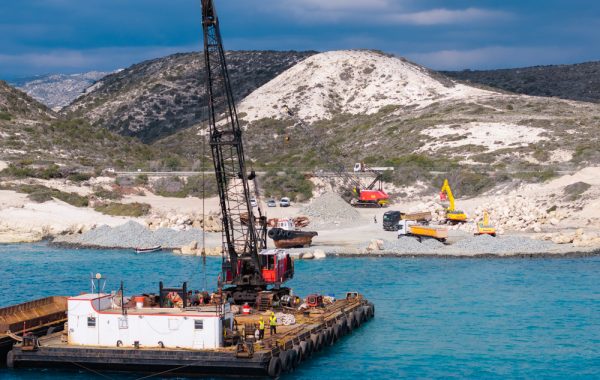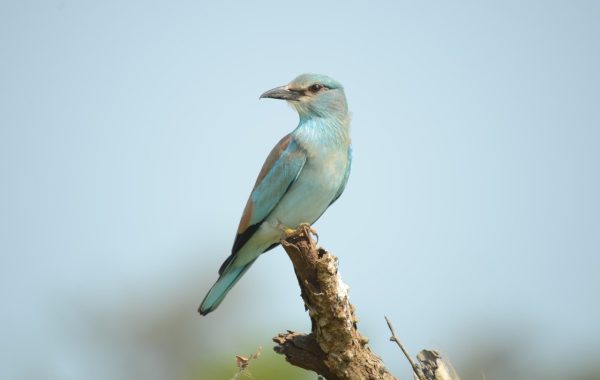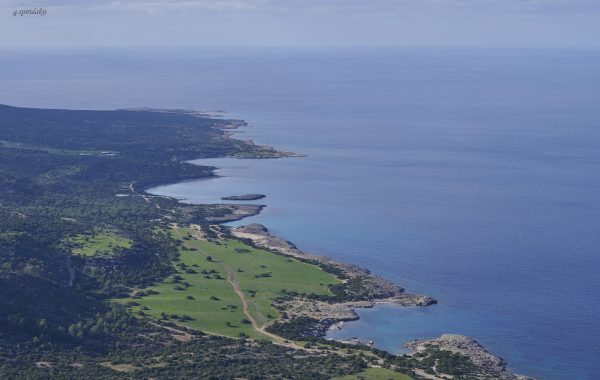In early 2021, the Planning Council presented what was a truly bad Local Plan, proposing changes to the planning zones in Akamas. This was a Local Plan with a number of provisions that would have significant negative impact on the area’s biodiversity, particularly on birds such as the Bonelli’s Eagle, the Peregrine Falcon and the Roller.
Disaster averted
The Environment Department’s final assessment, published in late August 2022, ensures that most of the Local Plan’s problematic provisions are removed or restricted. Among others, there will be no isolated housing in Akamas, the ‘visitable farmsteads’, which were a ‘Trojan Horse’ for scattered development, are sufficiently restricted, the large-scale resort-type ‘specialized developments’ randomly placed in the countryside are largely removed from the Plan and there will be no expansion of the ‘open wound’ in Androlikou with a new quarry zone close to the gorges. The Environment Department’s Opinion also includes very useful proposals for the provision of incentives to land owners in Akamas.
Back to ‘square one’
The worst has been prevented and disaster averted, provided that is, that the Planning Council implements all of the Environment Department’s conditions to the letter. This was a battle that had to be fought and a victory that had to be won for the protection of the area’s biodiversity, and a ‘win’ that could not be taken for granted. However, too much time was exhausted by competent authorities, environmental organizations, the communities and other stakeholders in dealing with the Planning Council’s bad proposals, only to return back to ‘square one’. It is ‘square one’ because we are still no closer to securing the sustainable log-term management of Akamas. To achieve this we need three things to go hand-in-hand: Protection – Management – Local Prosperity, and we still lag behind in at least the last two.
Management of the entire Peninsula
If there is one conclusion that can be clearly drawn from this entire process, it is that Akamas is obviously not just the state-owned land and that the rest of the peninsula cannot be ignored. As it stands, the management of Akamas is mainly focused on the National Forest Park, which is the state-owned part of the area. We want to see the Management Plans for the two Akamas Peninsula Natura 2000 sites implemented, as it is required for the needs of the species for which Akamas is protected. But we also want to see the State go one step further and face the remaining challenges, such as finding solutions to the perennial conflict between protection and development that is affecting the site.
Support for the local communities
In terms of local prosperity, there is no plan that can be successful if it doesn’t have the support of the local communities, which must be given the opportunity to see the real benefits of protecting nature. Our vision is for the entire peninsula to be protected in a sustainable way while promoting the real and long-term prosperity of the local communities by preserving the area’s competitive advantage, which is its natural landscape, as the main attraction for tourism.
The necessary will and resources are required for this to be achieved, so that the communities become the real starting point for the visitor to Akamas. Our vision is for the visitor to have the communities as their base for their stay in Akamas, and to get all the necessary provisions for their excursions from the communities and return there in the evening for their overnight stay. The information about the visitor’s options at the site to be provided at the communities, whether their interests are in sports, enjoying nature or cultural heritage. Special services such as tour-guiding that provides authentic experiences to be available at the communities as well as traditional products, relevant workshops and other culinary experiences.
So much can be done in an area such as Akamas. Such models, that promote long-term prosperity through nature conservation with enormous benefits for the regions and local inhabitants, who gain a real stake in nature protection, are successful in so many other places in the world. Why not in Cyprus?




